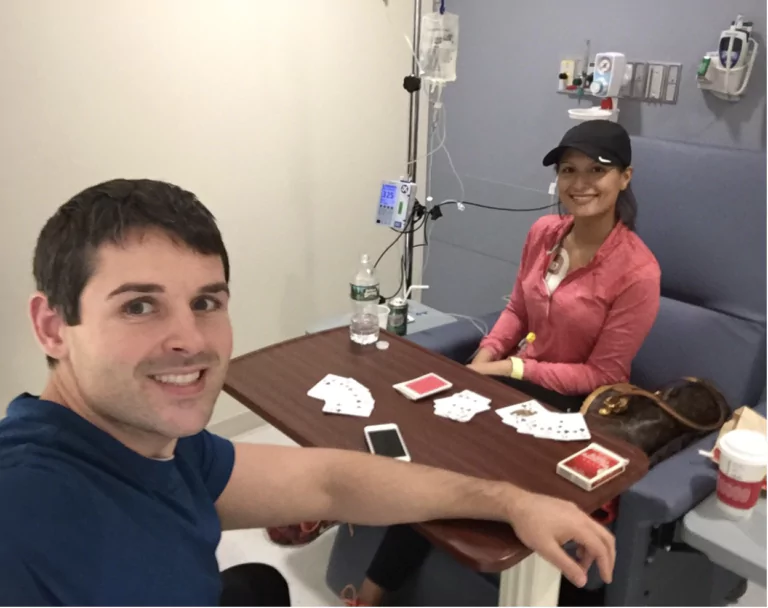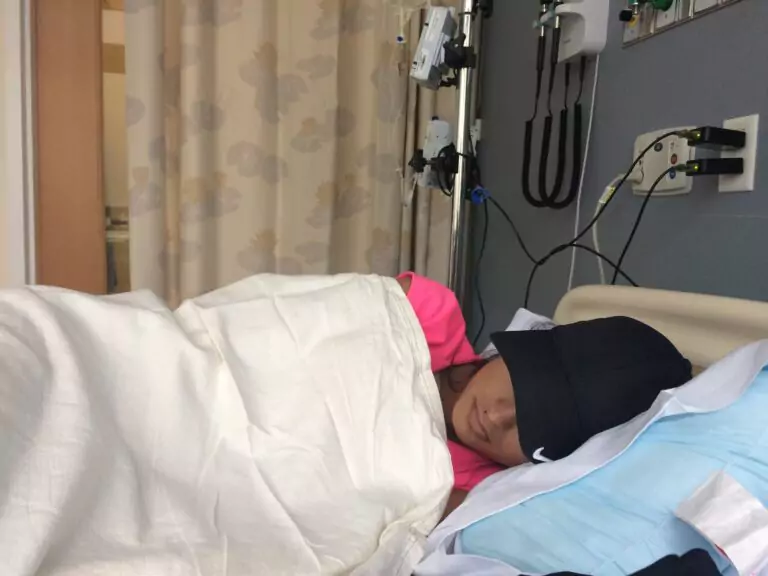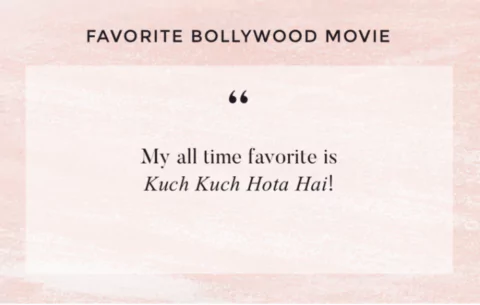Natasha Verma, Television Anchor & Founder of the Verma Foundation
- Shakti Collaborative

- Jul 21, 2022
- 9 min read
Updated: Dec 17, 2024
Note: This article was originally published on shakticollaborative.co. Some information may be dated given the original publish date.

Meet Natasha Verma, television reporter/anchor on NBC10 Boston’s weekday morning show and Founder of the non-profit Verma Foundation, which makes and gives free cap wigs to women and children battling cancer. Natasha created the #PutACapOnCancer program after her cancer diagnosis in 2017. Natasha shares with us her story of battling Hodgkin’s Lymphoma, advocating for her own health, and creating lasting impact.
The Beginning
“I was two years into working at NBC10 Boston and things were going really great. I’d started working out more regularly and was feeling really healthy. At the time I was waking up at 2AM for my shifts as I worked the morning show, and one night right before my alarm went off, I felt a pain down the left side of my shoulder. I didn’t think anything of it and thought it might have been a pulled muscle.
That’s when things started to turn. My dad is an internal medicine physician in Texas, so I called him later that day and told him about my shoulder pain. I also felt a bit of a lump on my collarbone, which he thought was strange. My dad didn’t like hearing the word lump as both of his parents had passed away from cancer, so he told me to go to a doctor.
The first doctor felt the lump and said it was a good thing that it was moving around. She thought it was a sprained muscle so she gave me some pain medication and told me to monitor it. A couple days later, I was at a Red Sox game and started having trouble breathing. I was trying to take deep breaths but couldn’t fill my lungs completely, so I called the doctor and told her I was experiencing some chest tightening. Something inside me was feeling off and I started to panic as I had no idea what was going on.”

“I went to the ER, and I remember the doctor looking at me confused, as I was 23 years old with a clean bill of health. He told me we weren’t going to do an ultrasound and that ‘it’s not a problem, sweetie, you’re going to get bumps and bruises all over your body and you don’t need to come in every time.’ I was shocked to hear how dismissive he was, so I put my dad on speaker phone to speak with him directly. The doctor said that there was no way we were going to do a CT scan, and he told me to go to my dad’s clinic and get an ultrasound. I continued to be very persistent and told him I was afraid it could be cancer. He said that there was no way it could be cancer, but gave in and ultimately did an ultrasound. It took an hour for the results to come back, and it turned out that I had inflamed lymph nodes.
That’s when I started to panic a little more, as the doctor’s demeanor had completely changed. He did the CT scan, and I waited in the same room for three hours to get the results. He finally came back and told me that I could have Hodgkin’s Lymphoma. We did a biopsy and found out it was stage 2 Hodgkin’s Lymphoma. I had a tumor on my left and right collarbone and a mass growing through my chest.”

“When they say cancer turns your life upside down, that’s exactly what happened to me. I was 23 when I was diagnosed and I had been feeling perfectly healthy up until that point. Everything came to a grinding stop. I had to leave work, which was really tough as I was young, and this was the time to be achieving and growing my career.
Some people start a support group and want a whole troop rallying around them in moments like this, but I chose to be very private about my diagnosis. I only told the people who needed to know, and didn’t share about it on the news or on social media at the start. I wanted to be on my own and just focus on fighting the disease.
It was a pretty difficult process to go through having been in the public eye. I went from being on TV every single day to not being on TV. NBC was very respectful of my wishes, and would just tell people that I’d be back. I read a lot of emails from viewers. Some people were even asking if I was dead, or if I had been fired. There were also some media blogs that speculated about where I had gone – gotta love the communications business! But what can you do, and who cares when you’re fighting for your life?”
Treatment: The Real Talk
“I started chemo the first week of September and went all the way through Thanksgiving. Chemo was every two weeks, and I had three rounds of it. The nurse had prepared me for how I might feel, but in reality it was much worse. I felt like every single part of my body hurt, and my muscles writhed with pain. The pain was down to my bone. It was as if I was putting my foot in a shoe that was too small and I couldn’t do anything.
I would wake up exhausted as if a truck ran me over. I was on pain medications around the clock, which had their own side effects. The medication made me nauseous, so I took anti-nausea pills which made me constipated. So then I took anti-constipation pills which meant I had to eat, but I couldn’t because I had lost my appetite from chemo. It was a vicious cycle of solving one problem to the next. For somebody who had taken zero pills to now 12 pills a day, it was basically hell. Not everybody experiences this the same way, but this was my experience.”
“It was also really tough to go from being able to take care of myself to having others take care of me. The drugs and medication stopped me from doing anything physical. The chemo knocked out my lungs, and I couldn’t even walk a block without being out of breath. As a physically active person I felt useless because I was limited to my couch. It was hard. I felt like I was missing out on a lot. But looking back, I needed to take that time to focus on getting better so I could return to my normal life. Mental health was just as much of the battle as was my physical health.
I felt in many ways that my body betrayed me. Here I was, with such a will to live, and the spirit inside my body feeling so young – but an exterior shell that just wasn’t working. I felt like I was trapped inside of my own body and I couldn’t do what I wanted to do. It took me a while to accept that my body had limitations, and it felt like a horrible betrayal to me.”
But on the same token, I’m so grateful for my family’s support. My family rallied behind me and took care of me full time. Not a lot of people have that, and I’m so thankful. My family helped me appreciate the small markers of progress every day. After my second treatment, I could feel that my tumor had gone down. I knew the drugs were working, and day by day I followed what my doctors wanted me to do.”

“I was neutropenic during chemo, which meant that my white blood cell count was basically zero. Something like the common cold could quickly become a danger to my health and course of treatment. I didn’t leave the house very much, and I had to wear a face mask if I had to go somewhere. Everyone around me had to have had a flu shot. But we followed the rules, and I didn’t get sick. I treated chemo and recovery like it was my job. I had to get through it and make it to the finish line. We had to keep marching forward and treat it like a mission. There was no other option.
I ended up going through six rounds of chemo in total. By the sixth round I was a pro. We waited on the final scan to see if I could be in remission or if I needed to continue doing radiation, and things looked good. I’ve now been in remission for two years, and I get a scan done every six months. By year five into remission, I should officially be cured.”
Starting Her Foundation

“I knew hair loss was imminent, but I couldn’t believe it when it started to happen to me. One morning, I noticed a lot of my hair shedding throughout the day. I finally took a shower and chunks were just coming out of my scalp painlessly. I was horrified. I had to throw fistfuls of hair in the trash. I thought I looked like a monster, it was just insane.
I bought a synthetic wig (made of fake hair and cheaper than normal wigs), but I hated it because the hairline looked fake and the hair was also super shiny. So I put a cap on top of it to cover up the hairline and make it look more natural. I went through treatment with this “cap wig,” and I kept thinking about how there was nothing out there for women losing their hair. Women think it’s a vain thing to talk about, but the emotional impact of losing your hair is profound.”
I also participated in some Hollywood diversity showcases organized by various networks. For one of them, I had to come up with my own comedy characters which sparked my journey into writing. I’d been taking sketch writing classes as well and my classmates seemed to really like my characters – so much so that they pushed and inspired me to film them.

“So I started to work with my mom to make cap wigs – baseball caps with 100% human hair sewn on to the brim, with an inside lining that is soft and soothing to your scalp. Through the Verma Foundation, we launched a program to make these cap wigs and give them out for free to women and children who are battling cancer. They can pick out any color, cap and length and totally customize the cap to what they want. We’re helping patients reclaim their identities and return to normal life as much as possible. We launched the cap wig project on the day I announced to the public that I had been going through cancer. NBC and the broader community have been incredibly supportive, kind and accommodating.
In 2018, we gave out over 400 cap wigs across the country to cancer patients. Since then, we have given out over a 100 more. A lot of women come to me and say that they didn’t think hair was going to be such an issue. I tell them it’s not about vanity, it’s about dignity. It’s about whatever makes you comfortable going through treatment and gives you hope. If we can help alleviate some of that emotional pain so you can keep fighting, that in itself is a win.”
Lessons Learned

“I’ve seen that sometimes, people just put off taking care of themselves. Pay attention to your bodies. Don’t be afraid to speak up at the doctor’s office. You really have to advocate for your health. I was misdiagnosed twice and my cancer was already at stage two, so really stay in tune with your body and speak up when you think something is wrong.
Going through cancer has also helped me remember how important your health really is. Work is important too, but if you’re not healthy, you can’t do a good job in any other facet of your life. I now value my relationships better too. It’s very sobering to know that you have a great chance of dying. You believe the chemo will probably work, but you know that the alternative is also very real. These are pretty morbid thoughts, and it puts every day in perspective. I celebrate my birthdays much differently now. I’m happy to be alive, I’m much more grateful, and I take time to relax and enjoy.”

“For anyone who is going through cancer, it’s difficult to stay positive but you have to for your own mental health. Take it day by day and know what the next goal is. And never feel like you have to go through it alone. Our foundation aims to be a resource for patients, and we know that cancer can often feel like an isolating experience.
If you know someone who is battling cancer, listen to their cues and be comforting. Tell them that you’re there for them. Offer to help out and bring them food. Any way you can help goes a long way. If you can’t help, just be there as a friend to listen.”
Just for Fun
Author Bio Shakti Collaborative illuminates narratives of strength, choice, and culture in the South Asian community.











留言